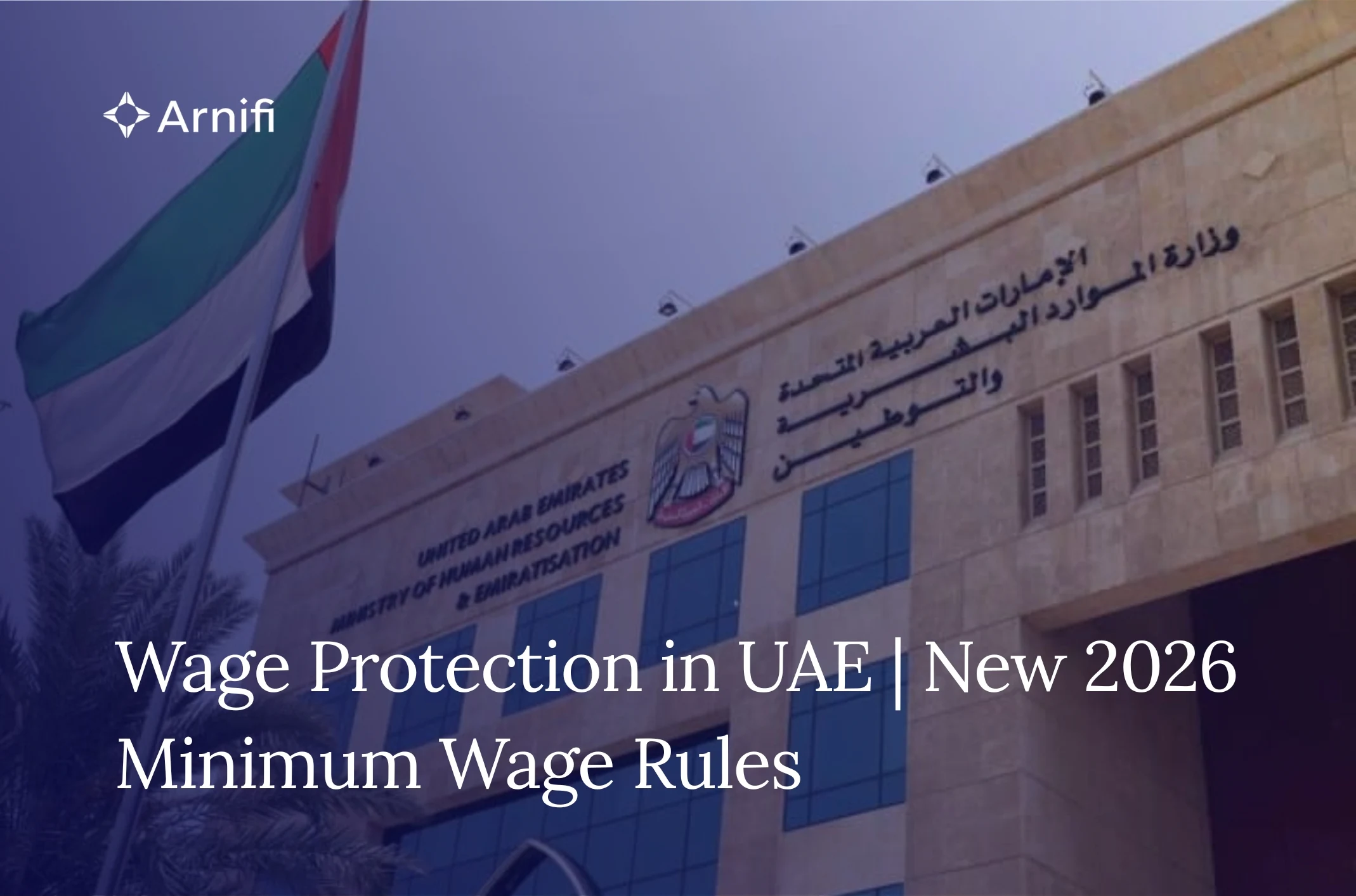UAE Salary Forecast 2026 | Salary Check on the Roles Set for the Biggest Pay Hikes
by Ishika Bhandari Nov 27, 2025  6 MIN READ
6 MIN READ

Table of contents
- Salaries Are Expected to Rise Moderately
- High-Demand Roles Poised for Strongest Salary Growth
- Which Sectors Will Lead the Pay Hikes?
- AI and Automation Redefining the Workforce
- Early-Career Professionals Face Headwinds
- Employment Trends Shaped by Regional Competition
- Implications for Jobseekers and Employees
- A Structural Shift in Compensation Strategy
The latest report, “UAE Salary Check Forecast 2026”, prepared by Korn Ferry, “shows a realistic and positive outlook for UAE salaries in 2026; salary growth is expected to stabilize rather than skyrocket. What shall characterize the coming year will be specific instances of pay increases for specialist talent based on needs for economic diversification, digital transformation, and rising regional competition for skilled talent.
Salaries Are Expected to Rise Moderately
Based on the forecast, average salaries in the UAE are set to increase by about 4.1% in 2026, compared to the average rise of 4.2% forecast for 2025, thus signifying a stabilizing economy where salary adjustments are in line with inflation, cost-of-living considerations, and a maturing labour market.
The headline number, however, hides deep structure changes. More and more organizations turn from blanket increases to differentiated pay strategies, such as paying more generously across the entire workforce in highly skilled or difficult-to-fill positions. This more focused approach indicates a mature economy in which compensation is closely tied to capability building and long-term business objectives.
HR experts quoted in the report argue that across-the-board salary hikes follow reactive policies and are no longer sustainable for organizations, a point job seekers should keep in mind during a UAE salary check. Nowadays, organizations emphasize so-called strategic competencies where future pay revisions contribute to retention as well as capacity building in the long term.
High-Demand Roles Poised for Strongest Salary Growth
There is a certain cluster of roles that in 2026 will receive stronger salary increases. These roles coincide not only with national transformation agendas through their digital and economic aspects but also with global trends that reshape workforce requirements.
Among the most in-demand functions:
- Engineering
- Technology and Digital
- Logistics and Supply Chain
- Finance and Accounting
These areas reflect the advancement of advanced industrial development, smart infrastructure, financial innovation, and improved efficiencies in logistics, where the UAE is headed. Even as the UAE positions itself as a global trade hub, demand for supply-chain talent continues to grow, while increasing adoption of AI and automation technologies has placed data professionals, cybersecurity experts, and systems engineers among the most sought-after specialists.
Interestingly, however, most of the same functions are also among those witnessing the highest turnover trends. It seems that engineers, finance & accounting professionals, and salespersons are the ones ready to switch employers for better pay and growth opportunities, making the war between firms for experienced talent to heat up.
Which Sectors Will Lead the Pay Hikes?
Sector-by-sector data reveals that 2026 will be really encouraging. Those industries with a robust investment pipeline accompanied by a disruptive growth strategy are likely to announce the highest UAE salary check increases.
The leading sectors will include:
- Banking and Financial Services
- Real Estate and Property Development
- Oil, Gas, and Industrial Manufacturing
- Retail and Consumer Goods
The rapid expansion of fintech, wealth management, compliance, and risk functions continues to set financial services apart. Real estate, traditionally one of the strongest pillars of the UAE economy, grows strong in population, foreign investment, and mega-projects across Dubai and Abu Dhabi, fuelling demand further.
Population growth and changing patterns of consumer behaviour are beneficial to retail, while the introduction of further national diversification initiatives and substantial investments in infrastructure lead the way for energy and advanced manufacturing in the industrial sector.
AI and Automation Redefining the Workforce
One of the most defining factors for the UAE salary check scenario by 2026 across industries in the UAE would be the increased adoption of AI and automation. According to the report, over 40% of organizations are expected to replace some roles with an AI system, especially in administrative, operational, and entry-level functionalities.
This is not expected to result in mass job losses but would indicate a decreasing demand for traditional entry-level jobs and a reconfiguring of hiring budgets towards higher-skilled, specialized roles. Organizations are repositioning their focus on employees who would design, manage, or integrate advanced technologies into business processes, as routine tasks are taken over by AI-driven tools.
As a result, talent markets are becoming increasingly polarized: high skill equals high demand and high pay; routine skill equals limited growth and more exposure to automation.
Early-Career Professionals Face Headwinds
Most affected by that change are young professionals or fresh graduates. The forecast shows that for newly recruited graduates:
- Longer hiring cycles
- Lower starting salaries
- Slower promotion paths
- Reduced salary increases compared to mid-career talent
HR analysts contend that companies are becoming selective when employing junior staff, as almost all entry-level tasks are automated or centralized. This raises the stakes for newly qualified professionals, given that the onus is on them to have acquired further technical skills, digital competencies, and specialized knowledge to be competitive in a fast-evolving job market.
Employment Trends Shaped by Regional Competition
With rapid economic transformation, the GCC region, especially Saudi Arabia, has been seeing intense competition in attracting skilled professionals. The UAE, which was usually an expatriate talent hub, is now up against other markets that also offer an attractive lure package.
To retain talent, UAE employers are looking to:
- More competitive compensation strategies
- Performance-linked bonuses
- Improved benefits packages
- Better work-life balance initiatives
- Clearer long-term career progression
Rather than focusing on small salary increases, companies nowadays provide a total rewards package comprising flexible work arrangements, development programs, mobility opportunities, and incentives to help retain their talent.
Implications for Jobseekers and Employees
For job seekers, even their colleagues planning career moves for 2026, the forecast points out some vital insights:
1. Specialists will fare best
Engineering, quantitative analysis, technology supply chain specialists, and finance professionals will have strong negotiating leverage for higher income or attracting competing offers.
2. Generalist and administrative roles face slow growth
Routine-task workers expect lesser increments, fewer openings, and hardly any chances unless they make a shift into a more technical or platform role.
3. Sector choice matters
The pay raise might be above-average for those entering the financial services, real estate, industrial, or retail sectors.
4. Upskilling is no longer optional
Basic digital literacy and technical and niche industry expertise will become vital differentiators.
5. Benefits are becoming as important as base salary
Companies are providing thousands of additional benefits to compensate for paltry salary increments, something that job seekers should consider during a UAE salary check while assessing an offer.
A Structural Shift in Compensation Strategy
The UAE’s 2026 salary outlook represents not only the response to a one-year economic setback but rather an even deeper structural transformation in the companies’ paradigms regarding compensation. They are prioritizing future-ready skills and aligning pay structures to their long-term strategic imperatives and not just short-term market pressures.
From technological change, through an economic transformation, to competing in its own region, a myriad of forces jointly define the labour landscape in this country.
To the employee and jobseeker, this means there are, and will be, plenty of opportunities, especially for those with specialized skills. Career planning, however, must be proactive, strategic, and aligned with market trends. Platforms like ArnifiHR can help professionals track salary trends and identify high-demand roles in the UAE.
Top UAE Packages

Related Articles
Top UAE Packages



